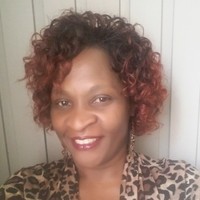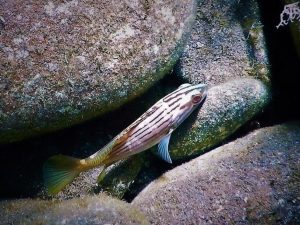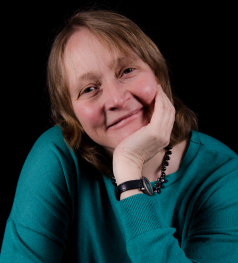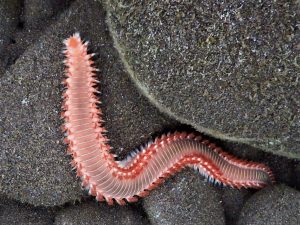CINTA Foundation – Uganda is a Kampala based Non-Government 0rganization founded in 2014 and registered in 2015, registration No. 11351. CINTA core programs include education support, skills training, economic empowerment and reproductive health& HIV/AIDS. Currently, the Foundation is operating in regions of Central and Eastern Uganda.
In this connection, PEAH had the pleasure to interview CINTA Executive Director Dr. Gertrude Masembe
By Daniele Dionisio
PEAH – Policies for Equitable Access to Health
Interview
 Dr. Gertrude Masembe*
Dr. Gertrude Masembe*
Executive Director, CINTA Foundation
Kampala, Uganda
–PEAH: Dr. Masembe, CINTA Foundation is an NGO working with implementation of core programs such as education support, skills training, economic empowerment and reproductive health& HIV/AIDS. Tell us more, please, around CINTA story and profile.
–Masembe: CINTA Foundation Uganda is a registered Non-Government Organization (NGO), implementing activities in various districts of the country. Our vision is “Empowered communities for holistic development” and all programs and hinged on this. Participatory approaches, developing community resource pools and implementing impact based projects for continued sustainability are the main pillars of our work.
The organization was founded by two women, Trudy (Gertrude) and Christine, who had earlier worked with NGOs in various parts of the country implementing and managing community, based projects at grass root levels. After their official tenure of work they both agreed that they needed to continue working with communities to help address their problems/challenges something they were passionate about. This is how CINTA Foundation Uganda was born, officially registered in 2015 and now looking forward to its 6th anniversary.
Under our education support component we supplement government efforts of ensuring achievement of Social Development Goal No. 4 of “Inclusive and equitable quality education”. Our programs provide for capacity building of teachers for improved methods of teaching and children performance while reduced absenteeism and increased children participation are achieved through provision of scholastic materials, supplementing feeding programs and sanitary -pad provision for girls.
The program is enriched with mentorship and career guidance for students and it’s during these sessions that we are able to create awareness about Sexual Reproductive Health issues and HIV/AIDS. During these dialogues/ sessions, we focus on Identifying challenges adolescents are likely to face, type of required support, sensitizing about myths and realities about SRH and Menstrual Hygiene management.
CINTA-Uganda also realizes that achievement and sustainability of long term impact goals in communities would be impossible without a multi-pronged approached that embraces skills development, financial support, business management training and establishment of market networks. It’s for this reason that community economic empowerment is taken as the core program, a building block for many of our achievements. This is done with a gender bias because women have been proven to be pivotal points of development and many advantages like education for children, reduced domestic violence, increased participation of women indecision making and overall quality of life have their bearing on increased incomes.
–PEAH: Dr. Masembe, recent achievements by CINTA Foundation include, as declared, pad distribution, skills development for Kawuga Women’s Group, education support, as well as staff capacity building. Can you explain in detail?
–Masembe: The organization over the past 5 years has made great strides in terms of achievements in the districts of operation. SRH was our flagship project and to date we have distributed over 3,500 kits of re-usable pads to adolescent girls in Mayuge, Iganga, Mukono and Kayunga districts to ensure they don’t skip school because of lack of sanitary provisions. Over 4,500 adolescents in these districts mainly in secondary schools have benefited from our SRH dialogues and can now handle a number of adolescent challenges and practice proper menstrual hygiene.
These dialogues have been supplemented with career guidance and mentorship sessions to help align learners to their desired goals for the future. In this regard, we are grateful to the Rotaract clubs of Nakawa and Natette that partnered with us to reach out to students in Jinja under their Kakuba Literacy program and outreaches at Kiswa Community Children’s Center.
Another area of intervention has been education support, a program under which we build the capacity of teachers and provide scholastic materials to children and supplemented their school feeding programs for better attendance and performance. Under this arrangement we have worked with Natetta Primary school, Kiswa Community Children center and individual primary school learners in Iganga district.
For the success of our programs, it is critical to have communities supported to increase their incomes so they can independently carry the mantle of family provision and support. It’s for this reason that we partnered with Krochet4Life and trained two (2) women’s group including Kawuga Women’s Group in production of sandal parts for increased household income. CINTA- Uganda after training the beneficiaries provided materials and linked them to buying company for continued production and market. However, it goes without saying that families too need support for basic requirements especially those trapped in the poverty cycle and at stages of fending for survival. This is a story for Katanga Slum Dwellers who could hardly feed their families. CINTA –UG in partners with Christ our Sure Foundation provided home use materials to families to help them cope with life and sustain their children.
Despite the achievements, CINTA-UG faces some challenges with the evolving NGO approaches both in fundraising and project implementation. This calls for continuous capacity building to enable us stay afloat amidst fierce competition for grants and professional staff. It’s therefore with great appreciation that I write about Front Runners League (USA headed by Mary Kurek which offered capacity building for our staff. As a funder, they carefully analyzed each of the staffs challenges and roadmap for better performance and provided mentors with specialties where we had need for training to improve service delivery. Despite the fact that it was a short term arrangement of three months, we can ably say we greatly benefited from this venture.
–PEAH: On this wavelength, what about CINTA main purpose?
–Masembe: CINTA Uganda’s main purpose is to have “Empowered communities for self-reliance”. This calls for holistic development approaches by not only training beneficiaries and providing financial and education support but also developing capacity within communities so they can continue to handle their own development agenda. Core to our approach is focusing on impact and sustainability as opposed to figures in terms of achievement.
–PEAH: In depth, as regards CINTA activities and approach to sexual and reproductive health issues and strategies of avoiding gender-based violence?
–Masembe: True, there was reported Gender Based Violence (GBV) in schools and surprisingly the male gender was equally affected in communities of operation. Many programs have placed great emphasis on the girl child but evidence from our field work suggests boys need to be given equal attention when handling gender based violence. We have therefore brought on board some male volunteers with specialty in handling gender based violence to attend to the matters male students. We also got some literature from World Health Organization (WHO) and Ministry of Health (MoH) to help us address this issue.
To drive our resource pool development agenda, the organization during its outreaches works together with “senior women & men” mandated to handle SRH issues in schools. This helps them build capacity to ably handle both gender based violence and SRH issues among adolescents in a school environment. In the near future we are looking at interfacing with UNICEF so they can work hand in hand with other grass root organizations to address this issue.
At organization level, we are strict about ethics when it comes to conducting office business and have a set of guidelines and rules to be followed by any person employed to work with CINTA-UG as a way of ensuring that GBV issues don’t occur.
– PEAH: All of this takes into close consideration the devastating effects of COVID-19 pandemic to the lives of the young generation in Uganda, as just stressed in your last article on PEAH. Some additional reflections about?
–Masembe: As earlier highlighted many girls have fallen prey to sexual activity at a young age as they endure long periods out of school and a number transitioned into young mothers. Boys on the hand have resorted to petty jobs for income which greatly affects the mindset of any young child still following through their academic journey. There is therefore need to rebuild social support systems and offer psycho social support to these children if they are to become beneficial members of the communities. It’s also inevitable that vocational skills training is strengthened and promoted to absorb those unable to rejoin the education system but willing to get new skills so they can engage in profitable Income Generating Activities.
–PEAH: Does CINTA work together with national and/or international partners?
–Masembe: CINTA Foundation Uganda partners with National Women Council (NWC), a national body mandated to spearhead empowerment of women in Uganda. NWC offers technical support to enable us achieve impact in our programs and sometimes partners with us for smooth delivery of community services. We also appreciate AfriPads and PulseNetwork that offered both technical and financial support for our SRH projects, Crochet4Life for working with us to change the lives of women, and Rotaract clubs of both Nateete & Nakawa that enabled us reach out to populations in areas where we have no coverage. Internationally, we have worked with partners in Australia, USA and currently working with ACWW-UK.
We are grateful to the Local District Administrations of Iganga, Kayunga, Kampala, Mukono and Mayuge that enabled us fulfill our dream of empowering communities for holistic development.
– PEAH: What are your duties and tasks in CINTA?
–Masembe: As the CEO of the organization, I provide leadership, management oversight, and coordination to a national network of the organization programs in the areas of strategic development, staff management, fundraising, financial management, programmatic management, establishment of accountability standards and partnership management. I am humbled to be at the helm of this young organization and privileged to chase my dream of making a difference in the lives of others.
–PEAH: Thank you Dr. Masembe for enlightening answers and commendable engagement
—————————————
* Gertrude (Trudy) Masembe is an executive leader with proven management background; effective problem-solving skills with ability to work in rapidly changing environments. She has demonstrated expertise in strategic planning, organizational development, project management and business intelligence across diverse spaces in the development sector. She attended Makerere University and specialized in Social Sector Planning and Management. Her passion is community development which cuts across various sectors like health, education and economic empowerment.
E-mail: trudymasembe@hotmail.com
By Dr. Masembe recently on PEAH:
Venomous COVID-19: Ripping the Country of its Valuable Young Generation
Interventions to Curb Covid-19 Spread in a Low-Income Country: Feasibility Challenges
Public Health or Poverty Alleviation? What are Mosquito Nets for?





